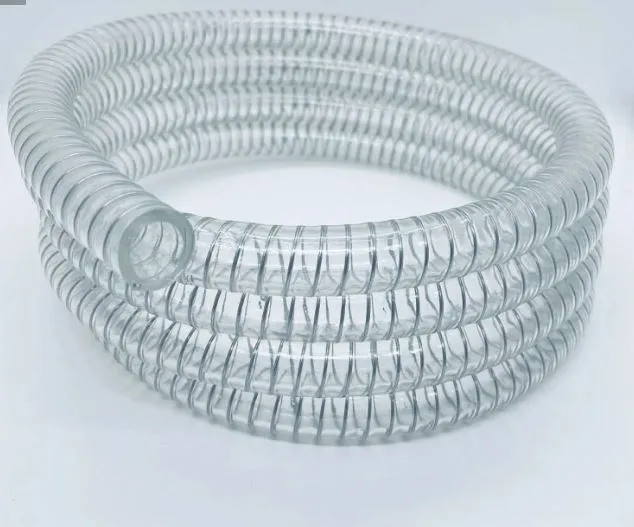LPG Gas Hose Pipe Solutions for Safe and Efficient Use
Understanding LPG Gas Hose Pipes Safety, Usage, and Maintenance
Liquefied Petroleum Gas (LPG) is a widely used fuel source, thanks to its efficiency and convenience for cooking, heating, and even powering vehicles. However, the safe handling and transportation of LPG require specialized equipment, including hose pipes designed specifically for LPG gas. This article will explore the essential aspects of LPG gas hose pipes, including their construction, usage, safety measures, and maintenance tips.
What is an LPG Gas Hose Pipe?
An LPG gas hose pipe is a flexible tube designed to transport liquefied petroleum gas from one location to another, typically from a gas cylinder to an appliance. These hoses are specifically designed to withstand the pressure and chemical properties of LPG, ensuring a secure and leak-free connection. They can be made from various materials, including rubber or thermoplastic, and feature reinforcement to provide additional strength and durability.
Safety Standards and Regulations
Using the right hose pipe for LPG is crucial for safety. These hoses must comply with specific safety standards, which vary by country. For instance, they are often required to meet certain pressure ratings, temperature tolerances, and resistance to chemicals. When purchasing an LPG hose pipe, look for certifications from recognized regulatory bodies that indicate compliance with local safety standards.
Safety is paramount when working with LPG, as it is both flammable and potentially harmful in case of leaks or improper handling. Therefore, using a hose that is specifically designed for LPG is essential to prevent accidents.
Applications of LPG Hose Pipes
LPG hose pipes are used in various applications
1. Household Cooking Gas stoves and ovens commonly utilize LPG for cooking. A reliable hose helps ensure that gas is delivered safely from the cylinder to the appliance. 2. Heating Many homes use LPG for heating systems. Hose pipes connecting the gas supply to heaters must be in good condition to prevent leaks.
3. Industrial Use In industrial settings, LPG is used for powering equipment, heating, and cooking. High-pressure hoses are often necessary for these applications.
4. Outdoor Grills Many outdoor grills and barbecues rely on LPG. Using a proper hose ensures safety while enjoying outdoor cooking.
Choosing the Right Hose Pipe
hose pipe for lpg gas

When selecting an LPG gas hose pipe, several factors need to be considered
1. Material Choose hoses made from high-quality materials that offer flexibility, strength, and resistance to gas and environmental factors.
2. Length and Diameter The hose should be long enough to connect your gas supply to the appliance without any strain, while the diameter should match the fittings on both ends.
3. Pressure Rating Ensure the hose is rated for the appropriate pressure level of your LPG system. Check the specifications provided by the manufacturer.
4. Temperature Resistance Select hoses that can withstand the ambient temperatures in which they will be used, especially for outdoor applications.
Maintenance Tips
Regular maintenance of LPG gas hose pipes is essential to ensure their longevity and safety. Here are some maintenance tips
1. Visual Inspection Routinely check the hose for any signs of wear, cracks, or leaks. If you see damage, it is crucial to replace the hose immediately.
2. Check Connections Ensure that all fittings are tight and there are no gas leaks. A simple soap solution can be applied to the connections to check for bubbles, which indicate leaks.
3. Avoid Extreme Conditions Protect the hose from extreme temperatures, sharp edges, and direct sunlight, which can cause the material to degrade over time.
4. Storage When not in use, store hoses in a cool, dry place away from direct sunlight and potential physical damage.
Conclusion
LPG gas hose pipes play a critical role in the safe and efficient use of liquefied petroleum gas, whether in homes, industries, or outdoor activities. Understanding the proper specifications, safety measures, and maintenance requirements is essential for anyone who uses LPG. By choosing the right hose, ensuring compliance with safety standards, and conducting regular maintenance, users can enjoy the benefits of LPG while minimizing risks associated with its use. Always prioritize safety and consult professionals when in doubt about gas installations or equipment.
-
Top Quality Oxy Acetylene Hoses for Sale Fit for Welding DemandsNewsJul.28,2025
-
The Future of Pneumatic Air Tubes in IndustryNewsJul.28,2025
-
Superior and Reliable LPG Hose Pipe Solutions for Every NeedNewsJul.28,2025
-
Exceptionally Durable and Versatile Premium Braided PVC TubingNewsJul.28,2025
-
Best Adapters for Connecting Garden Hose to PVC Pipe ConnectionsNewsJul.28,2025
-
The Essential Role of LPG Hoses in Safe and Efficient Gas DistributionNewsJul.16,2025














